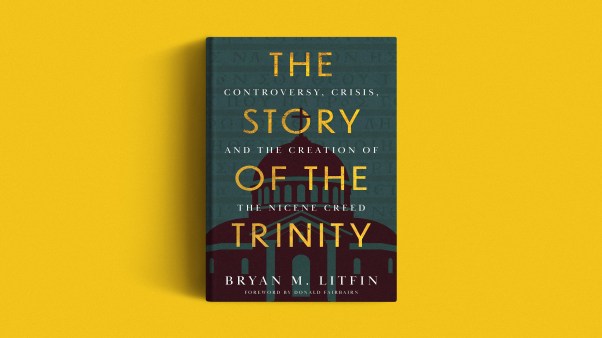The greek word for “witness” is marturia and denotes one who testifies to the truth. For many early Christians this testimony brought death, and the word came to mean one who bears witness at the expense of his life.
God sent his Son into the world to bear witness to the truth, but he was rejected by the majority and crucified, only to rise in triumph from the dead.
Stephen gave a Spirit-empowered witness to the truth and then was stoned to death; but his witness was triumphant and glorious, even with his dying breath.
The Apostle Paul witnessed to the truth of the Gospel by means of the special revelation he had received direct from his risen Lord. He, too, sealed his witness by a martyr’s death, but through that witness there emerged the Church of the living God.
Traditional history of the early Church states that all the apostles eventually filled martyrs’ graves after they had faithfully witnessed to the death and resurrection of our Lord.
From its beginning the Church has had a succession of martyrs, men who have unflinchingly confessed their faith in Christ only to have their witness become the occasion for a cruel death. And it may be that in our own generation the number of believers to die for their faith equals or surpasses that of any comparable period in history.
But there has come about a subtle change within the Church. Instead of exalting Jesus Christ and the implications of his death and resurrection, energies are now being diverted to manipulating the Church for largely materialistic and socialistic aims; or, on the part of those who take issue with this position, there is a tendency to leave the Church because a particular plan or line of reasoning has been voted down by ecclesiastical associates.
Just what was implied when our Lord told his disciples that they were to be his witnesses? Was their success to be determined by the number of those who heard? Was it to depend on results the world could see? Was their witness to be judged by victory or by faithfulness? In other words, did our Lord commit to his followers something that would be successful as the world judges success, or were they simply to witness to the truth and leave the results entirely in his hands?
That the Lord Jesus Christ will be the ultimate victor we know to be true. That some day he will be recognized as King of kings and Lord of lords is a promise he will surely fulfill. That some day every knee will bow before him and every tongue confess him as Lord (some in fear and some in adoration) is not to be questioned.
But the practical concern for every Christian today has to do with his responsibility to witness to and live for the One who has redeemed him.
I think that perhaps we Christians sometimes adopt positions and attitudes that gravely confuse the issue. We are inclined to forget that even while we live in the world we are, from the standpoint of the world, “aliens and strangers.” I wonder if we are not too often inclined to think of this world and its institutions as permanent, rather than transient. I also wonder if we are not inclined to forget that this is a lost world, standing under the just condemnation of God and headed for ultimate destruction. And I think we are inclined to forget that Satan is the prince of this world and that his ultimate end has been clearly foretold.
In the midst of such conditions and such a world the Christian is told to “witness.” He is to witness to the truth of God’s revelation in Christ. He is to affirm by word the validity of the gospel message and by deed the reality of Christ’s redemption. In fact, the weakness of the Church in every generation has been the failure of individual Christians to “witness” by these two means. And unquestionably the most effective testimony for Jesus Christ is that of changed lives.
That the Gospel is being distorted or denied today makes it all the more necessary for Christians to show what it really is. Jesus said the gospel witness was a determining factor in God’s timetable when he said, “This gospel of the kingdom will be preached throughout the whole world, as a testimony [witness] to all nations; and then the end will come” (Matt. 24:14).
We have been told of things which will take place, and even now are taking place, in the world. “There will be more wars and rumors of wars”; “nation will rise against nation and kingdom against kingdom, and there will be famines and earthquakes in various places.” False prophets will arise and lead many astray. Wickedness will be multiplied, and because of the intensity and pervasiveness of evil “most men’s love will grow cold” (Matt. 24:6–14).
Under such conditions our witness to the saving and keeping power of Jesus Christ is of prime importance. Our witness may be ridiculed as “irrelevant” and rejected, but how it is received is not our responsibility. We are to witness and leave the results to God, remembering that it is the Holy Spirit who waters the seed. Ours is the planting, and if we fail at that we have failed in our primary task as Christians.
A Christian’s witness is, of course, the spoken word of the Gospel. But it is more than that; it is consistent living. This consistency means exhibiting the fruits of the indwelling Spirit, which are “love, joy, peace, patience, kindness, goodness, faithfulness, gentleness, self-control” (Gal. 5:22, 23). By this God-devised and God-implemented standard, are we bearing a good witness for our Lord?
The Apostle Paul describes the effect on others of a genuine Christian life: “Thanks be to God, who in Christ always leads us in triumph, and through us spreads the fragrance of the knowledge of him everywhere. For we are the aroma of Christ to God among those who are being saved and among those who are perishing, to one a fragrance from death to death, to the other a fragrance from life to life. Who is sufficient for these things?” (2 Cor. 2:14–16).
The witness to the possession of eternal life is a testimonial to the saving and keeping power of Jesus Christ, and this evidence is greatly needed in the world in which we live. The greatest deterrent to such a witness is an attempt to live the Christian life by the world’s standards.
Preaching the Word is an absolute necessity. Clear demonstration of the change that regeneration brings about is also vital. How great the damage caused by inconsistency on the part of Christians! This is not an appeal for perfectionism, for in this life there is no such thing. But it is a plea that we demonstrate the presence of the living Christ in our lives, and that when we fail him—as we all do—we show that we have a Source of appeal to whom we can turn for forgiveness and strength.










